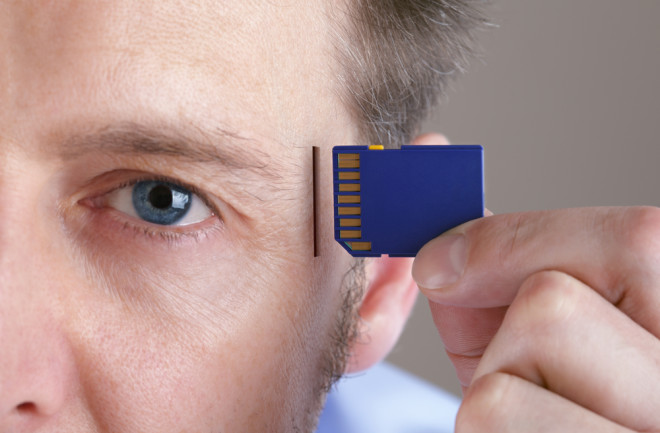Scientists are only beginning to advance memory-enhancing technology research, but even in this early stage, there are questions that deserve consideration. (Illustration credit: Brian A Jackson/Shutterstock) In fall, DARPA announced a major success in its Restoring Active Memory (RAM) program. Researchers implanted targeted electrical arrays in the brains of a few dozen volunteers — specifically in brain areas involved in memory. The researchers found a way to read out neural “key codes” associated with specific memories, and then fed those codes back into the volunteers’ brains as they tried to recall lists of items or directions to places. While the results are still preliminary, DARPA claims that the RAM technique has already achieved “promising results” in improving memory retrieval. Intriguing as this implant is, it’s only the latest in an ongoing series of neurological techniques and gizmos designed to boost and sharpen memory. The effects and implications of these systems raise questions that are worth consideration.
3 Implications of Memory-Boosting Devices

Newsletter
Sign up for our email newsletter for the latest science news
0 free articles left
Want More? Get unlimited access for as low as $1.99/month
Stay Curious
Sign up for our weekly newsletter and unlock one more article for free.
View our Privacy Policy
Want more?
Keep reading for as low as $1.99!
Already a subscriber?
Find my Subscription
More From Discover
Stay Curious
Subscribe
To The Magazine
Save up to 40% off the cover price when you subscribe to Discover magazine.
Copyright © 2025 LabX Media Group
